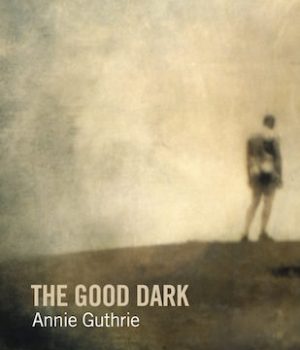Something Small of How to See a River
by Teresa Dzieglewicz
$19.95
WINNER of the DORSET PRIZE
“Something Small of How to See a River chronicles a vivid landscape of the struggle for sovereignty, dignity, and survival on the Standing Rock Reservation. The poet calls forth the full humanity of those standing in solidarity with the land and their children’s futures. The poet is smuggling a fresh groundwater swell of realfolk stories to testify alongside and against the sludge of headline misinformation, police reports, municipal records, and statistics. Working in the true sense of a liberatory project, here is honest, bracing news for the weary but unwavered.”
—from the Judge’s Citation by Tyehimba Jess
Format: paperback
Published: October 2025
Available on backorder
“Something Small is an offering; a collection of poems that together reads as an epic poem and ode to all the water protectors at Standing Rock. Not the interlopers or spectators, but those who came to work in the name of our collective liberation. Throughout the poems, Teresa’s voice is genuine, poignant, and unpretentious – putting words to memories and feelings that ordinarily defy them. It’s a rare and exquisite talent to unflinchingly capture the beauty and violence of movement spaces— from the police dogs and water cannons to busy kitchens and children’s songs— the poems journey us through the sights and sounds of the small, intimate moments that are often lost to the (made) spectacle of Standing Rock. In so doing, Teresa not only teaches us ‘how to see a river,’ but peels back the colonialist residue from the Mni Sosi, revealing a glimpse into all the life and beauty she sustains.”
–Sandy Grande, author of Red Pedagogy
“In bracing, enlivening poems, Teresa Dzieglewicz makes her impressive debut as a poet of place and heart. Recounting her time spent with Lakota and Dakota activists on the Standing Rock Reservation organizing against the Dakota Access Pipeline, Something Small of How to See a River fills in the gaps left by media’s imperfect reporting— Dzieglewicz zeros in on the humanity at stake, and the hard and sometimes joyous mechanics at work (and play) in the fight for survival. I felt changed by this book.”
—Lynn Melnick, author of I’ve Had to Think Up a Way to Survive
“This is the most memorable debut I’ve read in years. Through lyrical, narrative, documentary, and collaborative poems, Dzieglewicz reflects upon her experience living at the Oceti Sakowin Camp and co-directing a school for kids there. Despite her role, she is often the one who learns how to see the sacredness of water, how to listen to the land, and how to struggle for justice. This book braids many voices together in a ceremony of solidarity.”
—Craig Santos Perez, author of from unincorporated territory [åmot], winner of the National Book Award
“Something Small of How to See a River sings in the dark. While reading this stunning collection, I was reminded of the quote by June Jordan, which states that ‘Poetry is a political act because it involves telling the truth.’ Teresa Dzieglewicz weaves her witnessing with devastating facts and stunning imagery. The personal collides with the political while tracking the ‘slow waltz of survival” with innovative approaches to poetic form as the speaker reckons with the history and violence of land and language. I was captivated by these poems that reminded me of ceremony, beauty, and the depth of human connection amidst the terror, because as Dzieglewicz writes, ‘…maybe this is the most human thing we do: look upward, together, as the light changes from green to pink, the aurora wringing all these colors from the dark.’”
–Tiana Clark, author of I Can’t Talk about the Trees without the Blood
“Teresa’s words brought back visceral memories of being at camp—all of my senses were engaged. My heart was racing, and I could relate to and remember so much. I appreciated seeing her unpack privilege in real time, like witnessing the violence of the dogs and understanding the violence of inaction. The Mni Wichoni Nakicizin Wounspe (Defenders of the Water School) represents the hopes and dreams of the Water is Life movement and I love how Teresa constantly focuses on the next generation. When I read this, I was there again.”
–Kimimila Locke, Water Protector, Co-developer of Mní Wičhóni Nakíčižiŋ Woúŋspe
Through the weaving of documentary poetics, first-hand accounts, dialogue, and lyric, these poems tell the story of co-running a school at the Ocethi Sakowin Camp at Standing Rock. The poems interrogate the idea of narrative—who gets to tell a story and what does it mean when the official story—the story told by the governor, the police, or the local media—is a fundamentally dishonest one? They meditate on failure; how systems fail us and our environment, how whiteness fails to hold itself accountable, how future generations and the land are being failed—and how, in the face of all this, the Standing Rock movement was not a failure. At the heart of the collection is the strength, care, and radical joy of the movement, which shines through and against the violence.
Additional information
| Weight | 0.45 lbs |
|---|---|
| Dimensions | 6 × 9 in |





